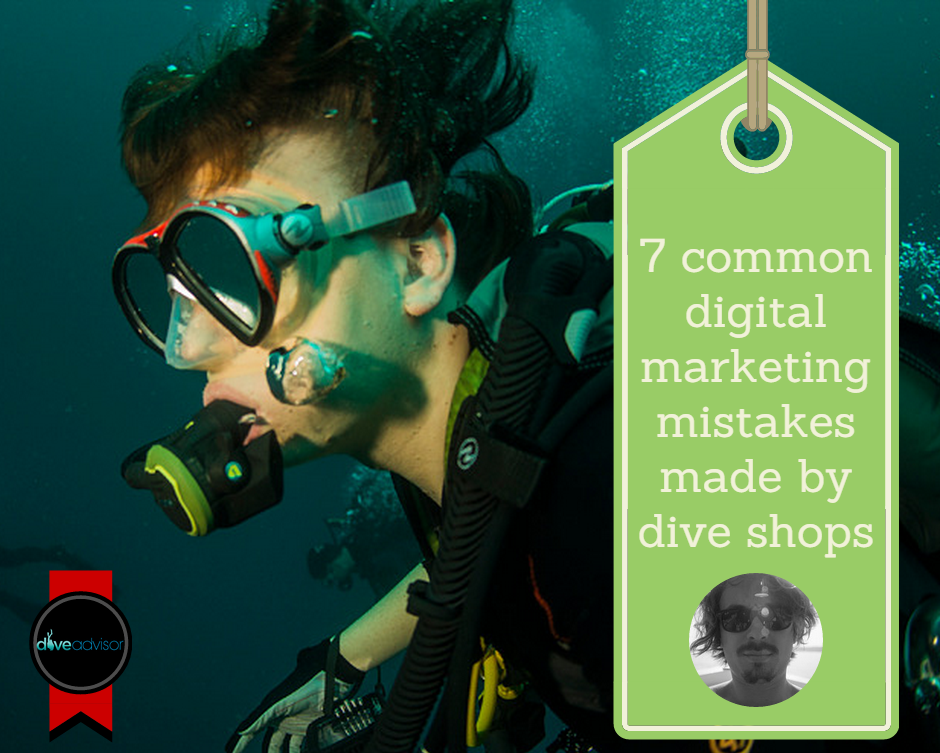
Published
Oct. 27,
2014
7 Common Digital Marketing Mistakes Made by Dive Shops and Liveaboards
Over the last couple of years of working as a digital marketer, building out diveadvisor.com, and studying thousands of dive shop/liveaboard outward marketing efforts, I feel like I’m ready to put to paper some clear cut erroneous tendencies that dive shops are making.
In this series of articles, I will outline the basics and begin working on a comprehensive guide.
Mistake #1. Poor Websites
People fail to realize that the website is by far the most important element of their digital marketing campaign. Some people have terrible designs that look like they were built in 1999, and others have beautiful websites with no search visibility whatsoever. Others view themselves as superstars who decided that they can rank ‘Best Scuba Diving’ and join the club of 0 vizibility.
And practically all of them view the website as a static brochure - something that they update once a year once they get a new price list. This is not respected by Google, nor their customers, and especially not potential customers.
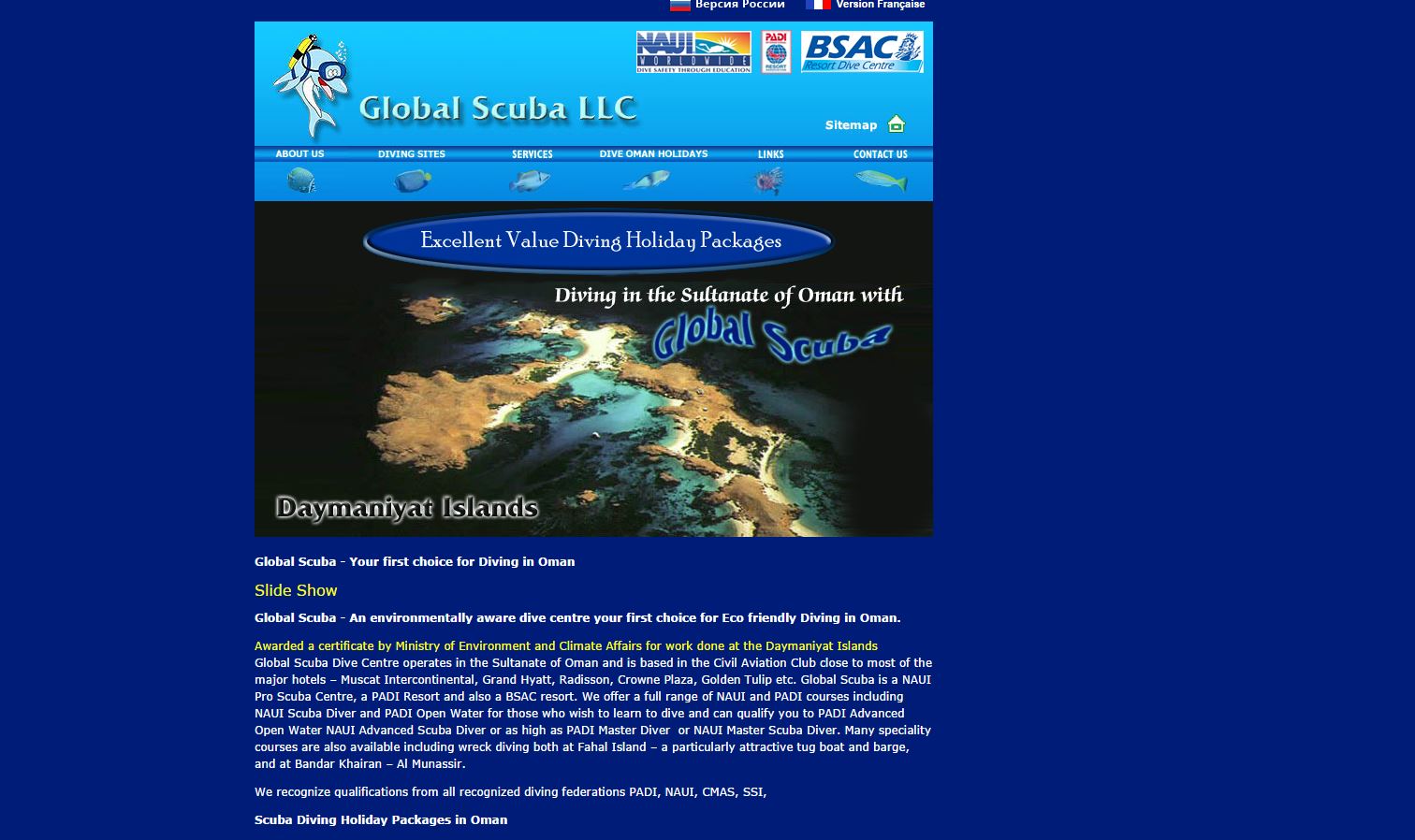
How to Fix?
Invest time and money to get yourself a usable website, which is optimized for LOCAL search. Do not try to rank for ‘SCUBA DIVING’.
You should be targeting - ‘Scuba Diving in
Do not try to shoot for the stars with online booking systems and the sort, just have a phone number, email and acontact form, as well as a simple description of your service.
Focus on aesthetical design, functional design, and search engine marketing.
The internet is full of amazing learning materials that will take you very little time to learn the basics and will save you lots of money in the long run. If you invest $2000 in a website that has no traffic, or the wrong kind of traffic, you wasted $2000. Unless you have the budget for very experienced SEO professionals, you don't have an option but to learn how to identify your search market yourself.
Mistake #2. Facebook. Religiously. Forget all else.
Probably the biggest mistake is the absolutely systemic over-reliance on facebook by the WHOLE industry. It's the biggest shot to one's foot that one can imagine, I see it day in and day out.
Dive Shops post well-written articles to their facebook feeds ONLY, not their websites first and then link to them on facebook, but to facebook directly. This is horrible because all the search engine friendly content that could have been indexed and got you the local rankings that you need is flushed down the drain behind facebook's non-indexable ‘wall’. This article will explain more, don’t take my word for it.
How to Fix?
Facebook is a tool that can help generate traffic to your website, which as mentioned in point 1 should be your go to conversion tool. Facebook itself is NOT the end, it's a means.
So, whenever you want to publish a new picture or a new article, do so on your website first and then you can either post a link on your facebook it OR, you can even duplicate it and post the same thing there. New content, especially rich content should go on your site.
Mistake #3: Facebook Floods of Twitter
This point kills me even more. It seems that the Scuba Industry really doesn’t get twitter… with the rare exception of course.
So as an extension of the addiction to facebook, the logic is to simply connect your Facebook to your twitter and just spam your twitter feed with non descriptive auto-garbage that flows from your Facebook. Its actually painful how often I see this, and frankly it doesn’t make sense.
If the people doing this realized the non existent (CTR) clickthrough rate of such activity and the spammy nature of such an approach, they wouldn’t bother to do it in the first place.
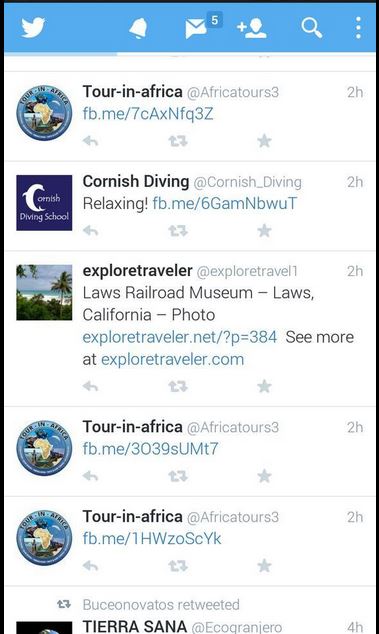
Twitter is a fascinating platform - in my opinion far more powerful than facebook, but gets neglected OR misused.
Another example is just another form of spammy tweeting with absolutely not aim. Take a look at this flood from @divessi

What is the aim of this? Who would find this interesting? It's almost like speaking to yourself.
Here is what I would do:
-
Use an auto scheduler to space these tweets out.
-
Link them to a relevant page, either the dive shop profile on the SSI network or the website of the dive shop.
-
Have some engaging copy to actually make it interesting to click.
How to Fix
Do it right or don’t do it all. Carefully find relevant users by either looking for them on the followers of bigger accounts such as @padi @scubadiverslife or @thesub2o You can also just search ‘Scuba {country}’. For example, if you are a diver in Flordia, search ‘Scuba Florida’ or ‘Diving Florida’ and you’ll get tweets that contain those. Engage with those users, they are your customers. Flooding the twittersphere with spammy fb.com/941kjfkjjk1 links won’t help you grow your bottomline, at all.
Mistake #4. Outsourcing Everything
It's evident from a lot of the footers, that the digital marketing aspect of many dive shops is completely outsourced to someone with no scuba knowledge, nevermind local scuba knowledge. The issue is that you have large amounts of money spent on websites where the budgets get wasted on some notion of perfect and custom design, which really is not that important. Usability and ‘findability’ get neglected and within a few months this look is outdated and irrelevant.
The website becomes un-editable by anyone outside the guys who built it, the budget dries up, and the site doesn’t generate revenue and eventually becomes a relic of the past.
How to Fix
Do the keyword research inhouse. Create a sitemap that most simply outlines your websites and leave out everything that is not critical - dont waste time on it. For example, if your primary business is not selling equipment, dont bother trying to create a complete catalogue with photographs of all your items. Just provide a brief list of the types of items & brands that you hold. Even if you do it once, it's something that constantly needs to get updated and it will either get neglected or take up too much of you valuable time.
Mistake #5. No Blog
And I don’t mean a facebook page, no a real blog, for example on yourwebsite.com/blog. This is so important that I can’t even begin to emphasize this enough.
Once your website has all the basics, your locations, your team, your contacts etc. it needs some flare. It needs something that shows your character and provides an insight into your day-to-day life. As I mentioned, your primary source of information has to always be the website. Everything else echoes it, and ultimately drives people there.
How to Fix
Insist on using a simple platform, like wordpress for the creation of your website, and ensure that whoever sets up the website for you teaches you how post on it. This beginners guide to wordpress should teach you all you need to know. The interface is really simple. Honestly.
Post regularly. Set yourself a schedule. Delegate to a member (younger) of your team to blog about what's going on. It can be anything, logs of the days diving, fresh photography shot by your customers (with their permission of course).
Mix up between local based articles, e.g. “Top 10 Dives in
Mistake #6. Not Optimizing for Local Search
As I mentioned before as a local business, you need to reach ‘local search’ i.e. someone looking for a business in your area. Besides optimizing your website for localized search terms like ‘Scuba Diving near
I rarely see dive shops use these free and very powerful resources being used.
How to Fix
Using Google Business Listings, Yelp and other newer resources, like diveadvisor.com to create profiles of your business.
For example, once you list your business with DiveAdvisor - we create a page with a few points that can help you with local search:
-
You name + URL e.g. diveadvisor.com/dive-shop-name
-
Your exact location on a map
-
Your address and contact details
Like other local search resources, our service has SEO targetting of local businesses, for example, https://diveadvisor.com/extra-divers-qantab
The Description of this listing is: "Extra Divers Qantab, Scuba Dive Shop & Dive Center in Muscat, Oman"
You will then see like ‘Scuba Dive Muscat’ or ‘Scuba Dive Oman’ or ‘Extra Divers Qantab’ or ‘Extra Divers Muscat’ are all variations of the terms in this title, which is exactly the sort of long tail localized traffic you need to be targeting.
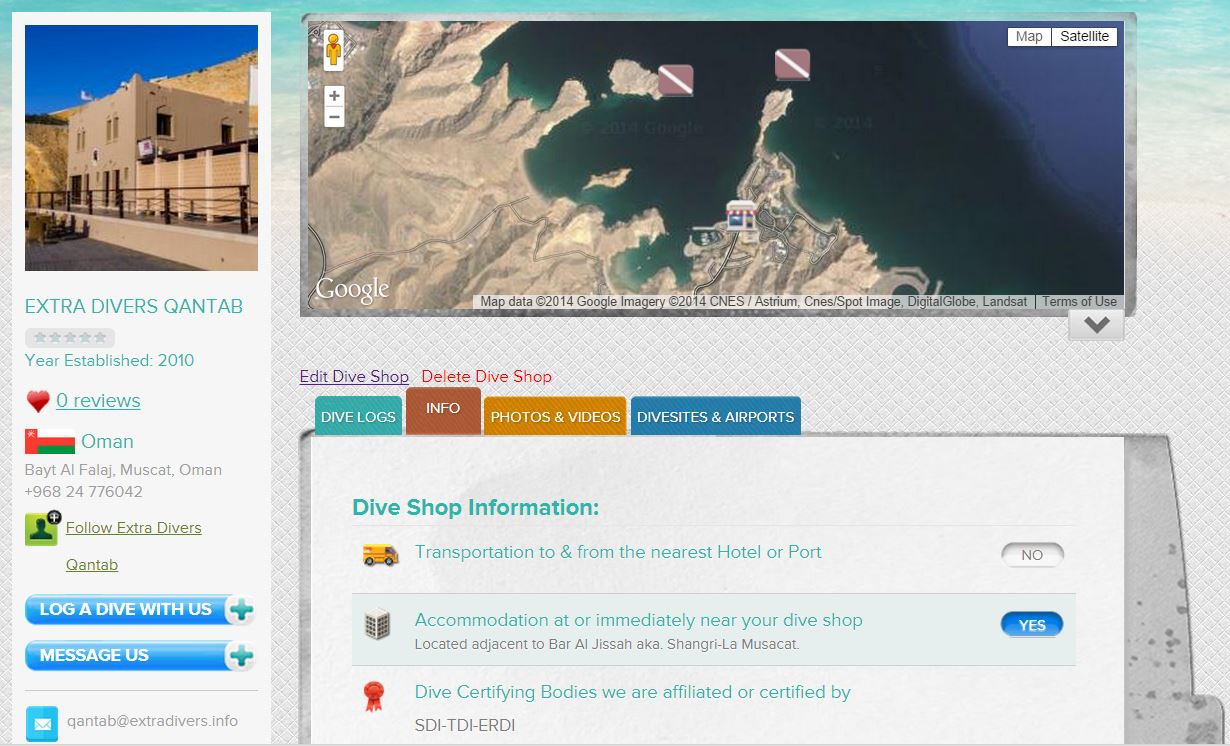
Let's move further - Backlinks. If you notice, on https://diveadvisor.com/oman/dive-shops, you will find Extra Divers Qantab in the list with a link to the shop. Now since that directory page has an article written on Oman, and probably gets the most backlinks for Oman's related info, it will pass on plenty of ‘link juice’ that will boost the rating of the shop page.
Mistake #7. Not Investing in a Brand
Finally, I feel only 5-10% of the entire scuba industry put in any creative thought process into the naming of their operation. Usually it's something like “Scuba Adventures”, “Global Scuba” or “Best Scuba,”or something totally cliche.
As for the brand, 95% of the brands go for a blue-color base.
And a lot of them either using some variation of a diver or the DAN logo as their logo. Brand recognition is really important and when you have such a big blurb of identity-less operations, it really doesn’t ring well with customers.
How to Fix
Avoid the word Scuba in your name. If possible, avoid the Diving or Divers and just spend some time coming up with a play on words or even something that is not straightforward. Secondly, invest some money into developing a unique logo with illustrations and some clear characteristics that stand out.
Finally, avoid the color blue, a planet, or the DAN symbol.
Conclusion
The scuba industry is a rather poorly represented community digitally. Essentially, this was our ultimate motivation to launch diveadvisor - to simplify and organize the necessary information into a usable form.
I hope you found this article useful.
To make this more interesting - if this post gets over 250 social shares or over 1500 views, I will write a detailed step by step guide on how to develop a world class web presence for $500 or less, and for it to generate plenty of search traffic and therefore leads.
Featured Posts
-

Please "Like" My Photo!
Once you've made some cool underwater shots, you would love to have more people notice your photos, for example by sharing them on Facebook. A path full of potential but lots of nasty obstacles on the way. Let's have a look!
-

Reef-Art: Looking at the Reef...
Reef-Art shows fascinating insights to an underwater world, 99% of the divers never see. Reef-Art is the "Fine Art" of macro photography. It's a passion! The passion to bring your audience something they don't expect, they h...
-
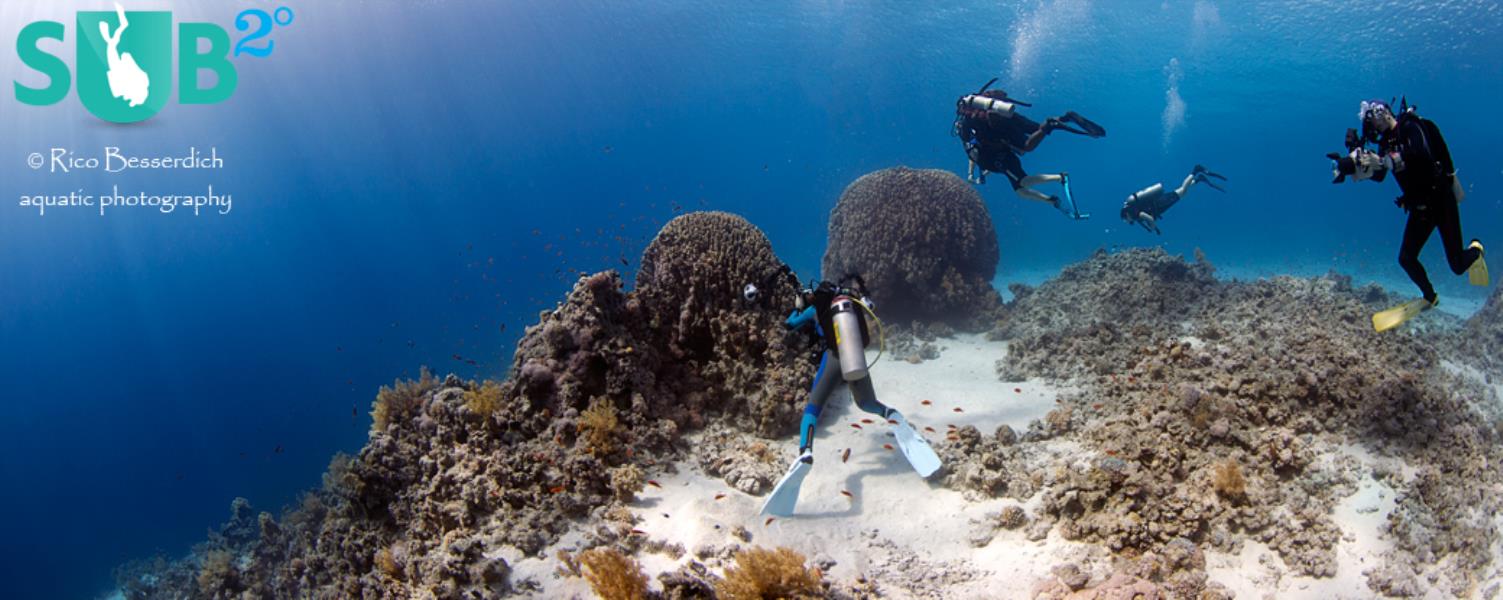
Underwater Photography: Shoot...
Are you ready for huge perspectives in your underwater photographs? Wide-angles are fine but do you want it even wider? Time to check out underwater panorama photography!


Load more comments
sunny 1/2/2015 7:33:49 PM Very good article..
Timur K 1/19/2020 5:27:20 AM Byron Kinkade, to be honest everything posted above is super generic stuff applicable to any region :)